Greetings everyone from Glasgow, Scotland!
While the Swarthmore COP Week 1 Delegation (Daniel Torres Balauro, Alicia Contrera, Clare Hyre, and Melissa Tier) got to an early yet slow start on our first official day, our days’ pace immediately changed as soon as we entered. Although it is still quite difficult to develop a daily itinerary given the quick changes that occur, insider info you get on the ground, and informal meetings, here is a list of the events that I had planned to do today.
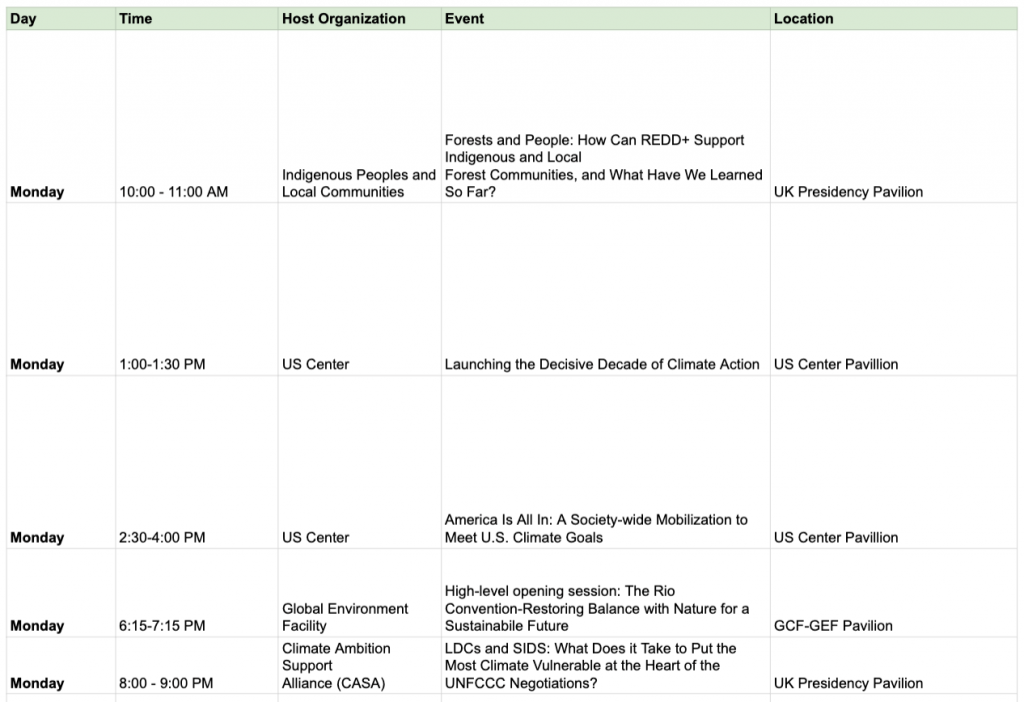
Surrounded by fellow observers, national delegates, and heads of state, we ventured into the “Blue Zone,” where country and organizational representatives host events ranging from topics showcasing their current advocacy, research, and efforts. (Side note: The difference in country’s funding was quite apparent just by comparing country pavilions like that of the United Arab Emirates’ versus Tuvalu’s).
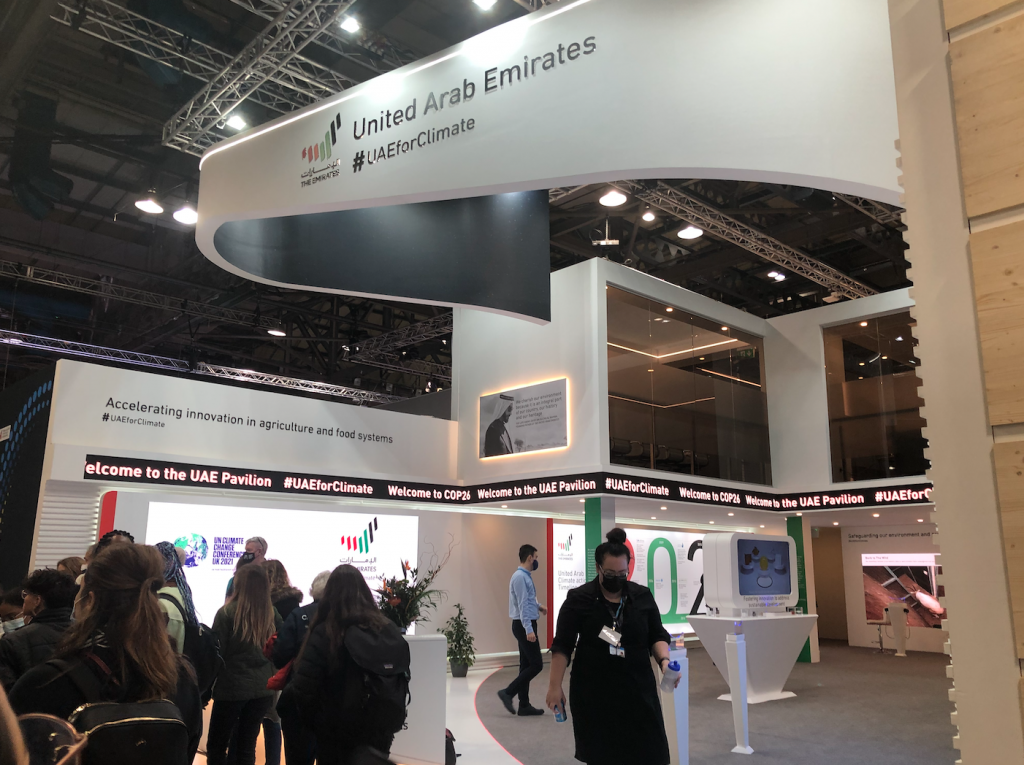
United Arab Emirates (UAE) Pavilion 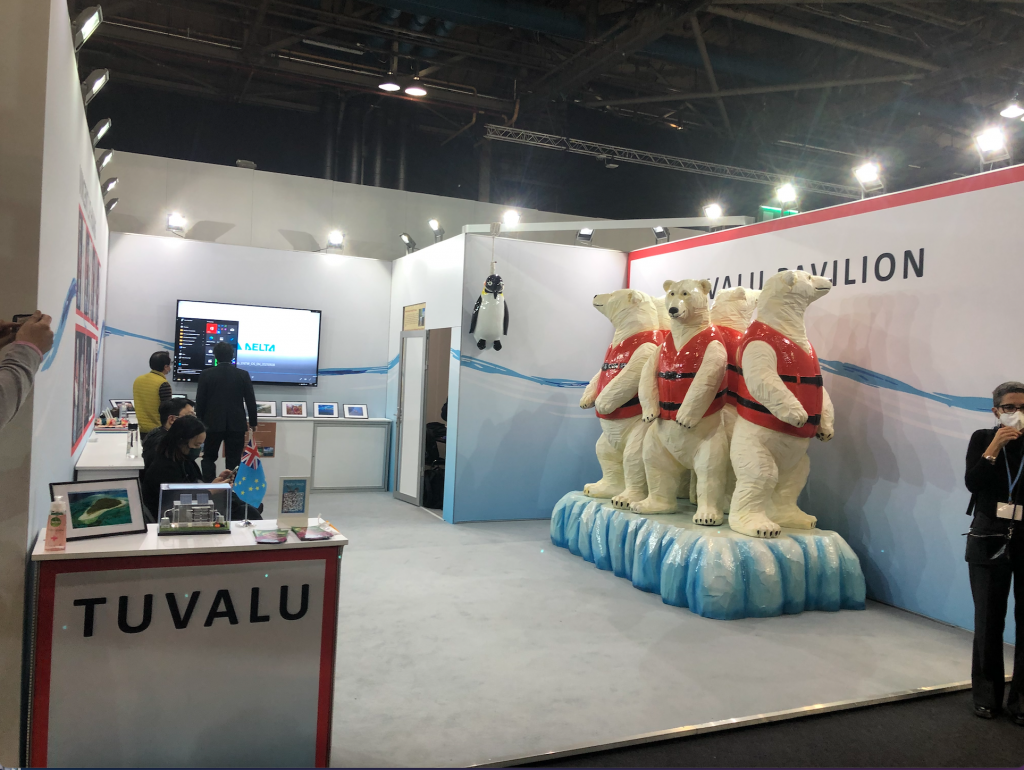
Tuvalu Pavillion
Given my personal interest in exploring the power imbalance between “developed” vs “underdeveloped” nations, I was intentional in attending events that expanded on this exact topic.
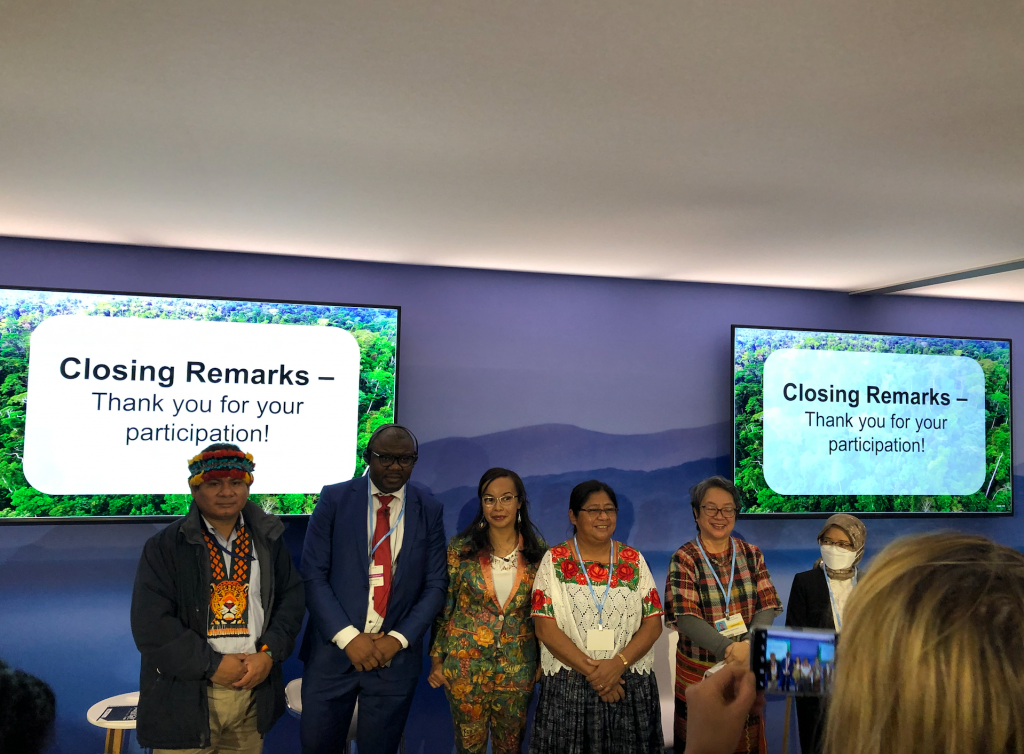
For example, my very first COP event, entitled, “Forests and People: How Can REDD+ Support Indigenous and Local Forest Communities, and What Have We Learned So Far?,” was paneled by Indigenous leaders and activists from around the world. Present were Tuntiak Katan, Victoria Tauli-Corpuz, Dolores de Jesus Cabnal Coc, and Raymond Samndong who discussed their efforts in ensuring that REDD+ (Reducing emissions from Deforestation and forest Degradation) Framework to center Indigenous strategies in its implementation. They highlighted the fact that despite financing Indigenous peoples (which has its own complications), policy-reform (in other words, collaboration with governments) must be the utmost priority. In Swarthmore fashion, I pushed this answer even more and asked: How do we continue this sort of collaboration with governments like that of Brazil’s and the Philippines’s who have been explicit in undermining the rights of Indigenous peoples? While they were not able to fully answer my question due to time, they explained to me that the enhancement of internal “capacity-building” in Indigenous communities is one way to address this challenge — and thus, we must find ways to strengthen our collective action.
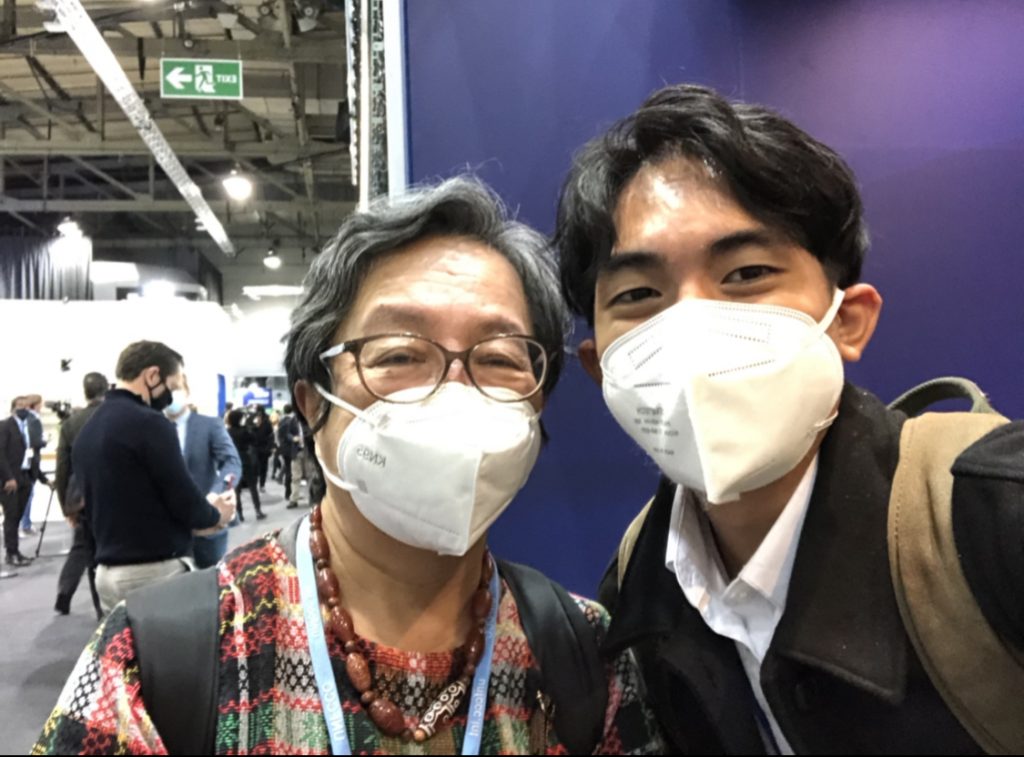
After the panel, I was approached by former UN Special Rapporteur on the Rights of Indigenous Peoples, Victoria (Vicky) Tauli-Corpuz, who chatted with me about environmental activism in the Philippines, and the dangerous conditions present as many activists are declared by the government as “terrorists.” Our conversation ended with us exchanging contacts, and an (over-excited) Daniel taking a selfie with Vicky.
Later on the day, I joined the rest of the COP delegation for two sessions at the United States (US) pavilion respectively titled, “Launching the Decisive Decade of Climate Action” and “America is All in: A society-wide Mobilization to Meet US Climate Goals,” where representatives talked about the important role of the US in addressing the climate crisis, especially after its previous withdrawal from the Paris Agreement. In these sessions, we were joined by many notable folks including, Secretary of State Tony Blinken, US Climate Envoy John Kerry, National Climate Advisor Gina Mccarthy, and Former New York City Mayor Michael Bloomberg.
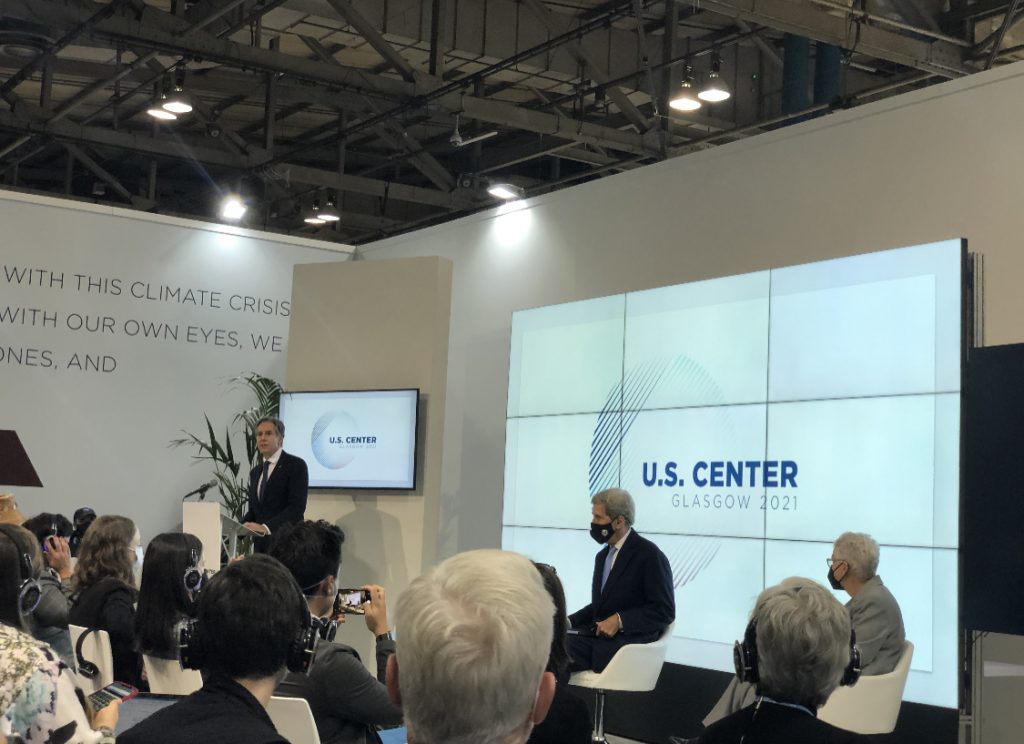
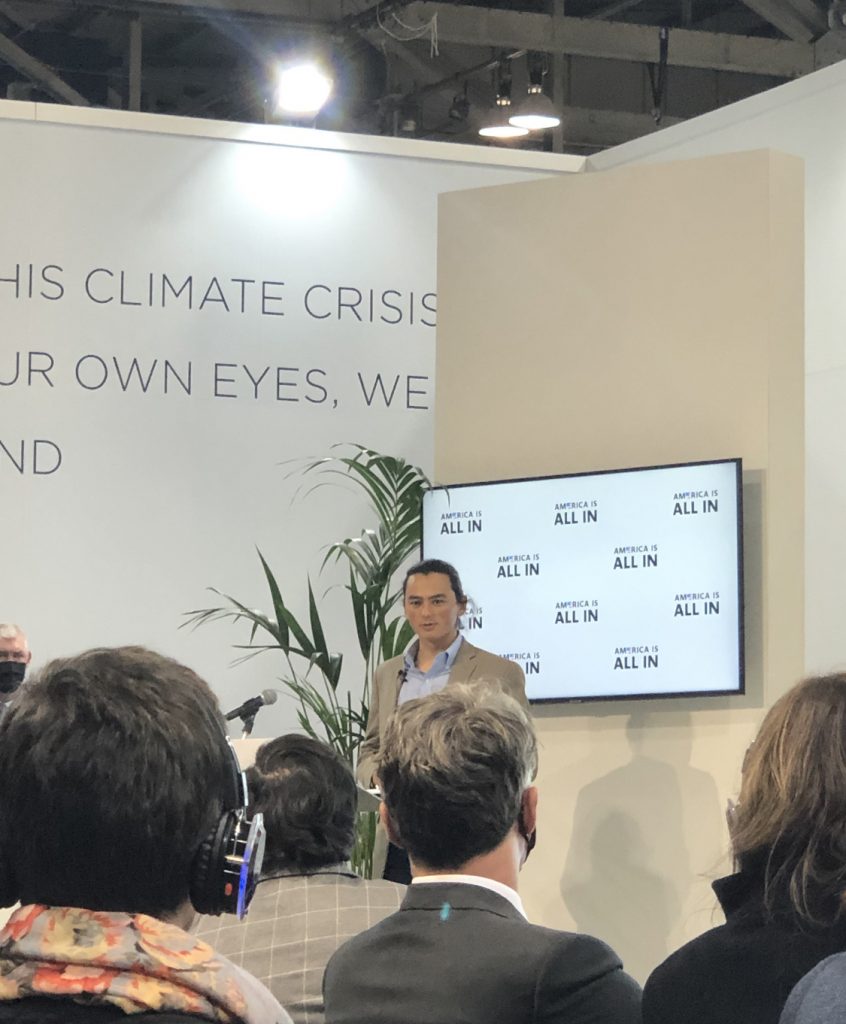
While it was great to hear all of these officials speak, the rockstar of the night was Indigenous youth activist: Sam Schimmel (Kenaitze Indian/Siberian Yup’ik). Schimmel talked about his Indigenous community in Alaska, and recalls a story where his father explained that the ocean is not merely a body of water, but their “grocery store.” Schimmel is getting at his community’s heavy reliance on the oceans, underscoring the importance of the preservation of their natural resources as a way to sustain their livelihoods and culture.
To top my very first day at COP26, Alicia and I had the chance to informally meet former Executive Secretary of the UN Framework Convention on Climate Change and Swarthmore alumna Christiana Figueres ’79. It was nerve-wracking to approach her, but I’m so glad we did since she met us with so much excitement and imparted to us some words of wisdom and advice (whatever that advice was will be kept to me and Alicia for now).
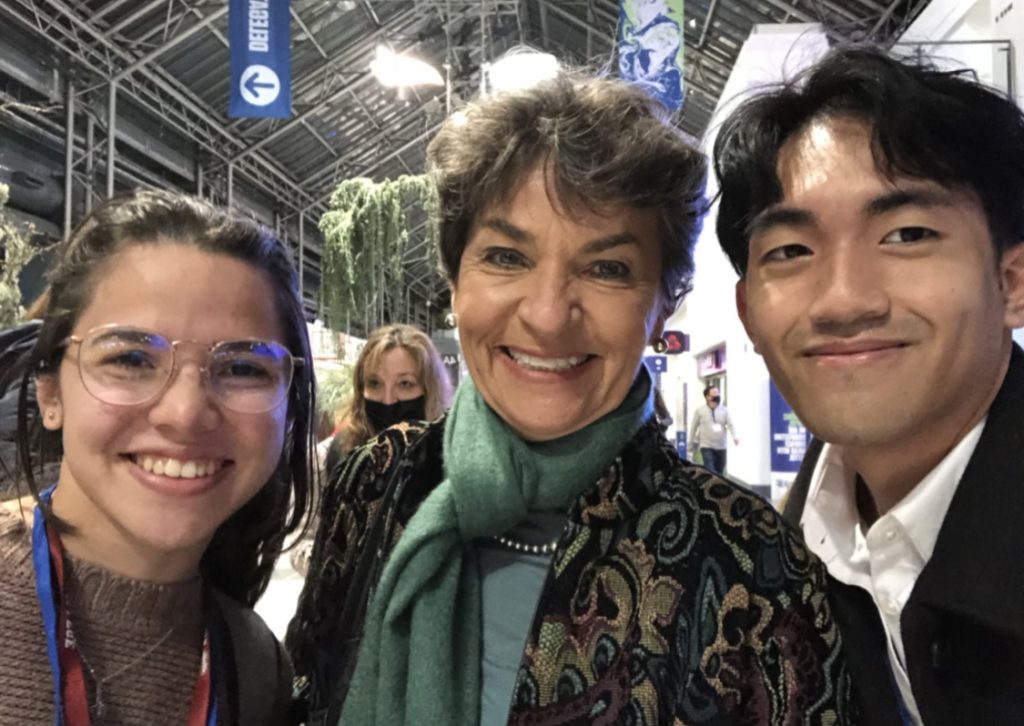
(I promise we wore our masks the entire time.. except for this moment, haha)
It was so powerful and valuable to me to be able to be in a space to discuss and learn about these issues. While efforts have been made for the inclusion of traditionally underrepresented voices within the international climate regime, I remain cognizant of the flawed power structures that puts the future of these nations in the hands of those that continue to threaten it. Throughout my next couple of days here at COP26, I hope that I am able to continue learning from folks around the world aiming to resolve these important issues.